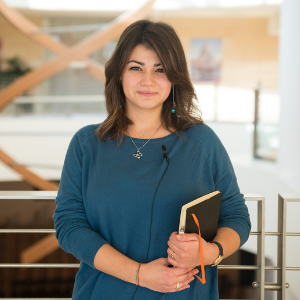A moving video is viral these days: an elderly lady with Alzheimer’s wearing a pair of headphones. She is listening to the music of Tchaikovsky’s Swan Lake, and after a few moments a magic seems to sparkle: even from her wheelchair, she suddenly reproduces, with decision and feeling, the movements of the ballet with which she herself had thrilled the audience many years ago.
The woman is Marta C. González, former Prima Ballerina of the New York City Ballet, who passed away in 2019. The video was edited with scenes from a similar choreography by Yuliana Lopatkina dancing The swan's death, and broadcast in her memory by the non-profit association Música Para Despertar, which uses music to help Alzheimer’s patients bring back their memories.
How is it possible to recall dance moves learned decades ago if you have a condition known to impair your ability to remember? We are answered by Prof. Massimo Filippi, UniSR Professor of Neurology and Director of the Department of Neurology of the IRCCS San Raffaele Hospital, and Prof. Federica Agosta, Associate of UniSR Neurology and Researcher at the same Department.
.jpg?width=800&name=Alzheimer_memories_role_of_music_San_Raffaele_University%20(4).jpg)
What is the relationship between Alzheimer's patients and memories?
The scientific literature suggests that memory is not to be considered as a unitary system, but rather as composed of several “stores”, each of which with different functions.
In the case of Alzheimer’s disease patients, episodic memory is initially affected, that is, the one that makes us remember the details of an event: when and where it happened and, possibly, with whom we lived it. All information that is learned and consolidated by a small but important brain structure, the hippocampus, which is the first to suffer the progressive loss of brain cells in this disease.
.jpg?width=800&name=Alzheimer_memories_role_of_music_San_Raffaele_University%20(5).jpg)
Procedural memory, on the other hand, is the ability to automatically recover what was previously learned, for example, it allows us to remember how to ride a bicycle or how to ski, and is kept intact for a long part of the disease.
It is for this reason that an Alzheimer’s disease patient may not remember what they ate for lunch, but they may be able to dance, just like Marta González did.
.jpg?width=800&name=Alzheimer_memories_role_of_music_San_Raffaele_University%20(3).jpg)
Can sounds and words help remember?
Among the brain areas responsible for “musical memory”, the anterior cingulate and the supplementary motor area, located in the frontal lobe, are among the most important and are relatively preserved in these patients. Specifically, such areas are involved in the recognition of sounds, words, familiar auditory stimuli, learned in the past.
Thus, these sounds become an alternative key to access otherwise lost autobiographical memories and past experiences. Musical memories are real allies for these patients and, amplified by positive sensations, generate a pleasant “emotional resonance”.
.jpg?width=800&name=Alzheimer_memories_role_of_music_San_Raffaele_University%20(2).jpg)
What can a caregiver do to help bring out some memories in an Alzheimer’s person?
In the rehabilitation field, the use of music therapy, dance and art therapy [1,2] is useful for maintaining memory abilities: a photo, a song or a poem is enough to stimulate the patient to remember personal and emotional experiences. And with these alternative access keys, the patient can rediscover their identity and the caregiver can “magically” meet the person they are fond of again.
Are you fascinated by Neuroscience? The San Raffaele University's PhD in Cognitive Neuroscience trains graduates interested in understanding the neural processes underlying cognitive functions and behavior, in normal conditions and in neurological and psychiatric diseases.

[1] Zeisel J. (2011) Sono ancora qui. Come la musica, il cinema, la danza e la pittura ci aiutano a capire e comunicare con chi vive con l'Alzheimer. Orme Edizioni
[2] Sacks O. (2010) Musicofilia. Adelphi
.jpg)

.jpg?width=800&name=Alzheimer_memories_role_of_music_San_Raffaele_University%20(4).jpg)
.jpg?width=800&name=Alzheimer_memories_role_of_music_San_Raffaele_University%20(5).jpg)
.jpg?width=800&name=Alzheimer_memories_role_of_music_San_Raffaele_University%20(3).jpg)
.jpg?width=800&name=Alzheimer_memories_role_of_music_San_Raffaele_University%20(2).jpg)
